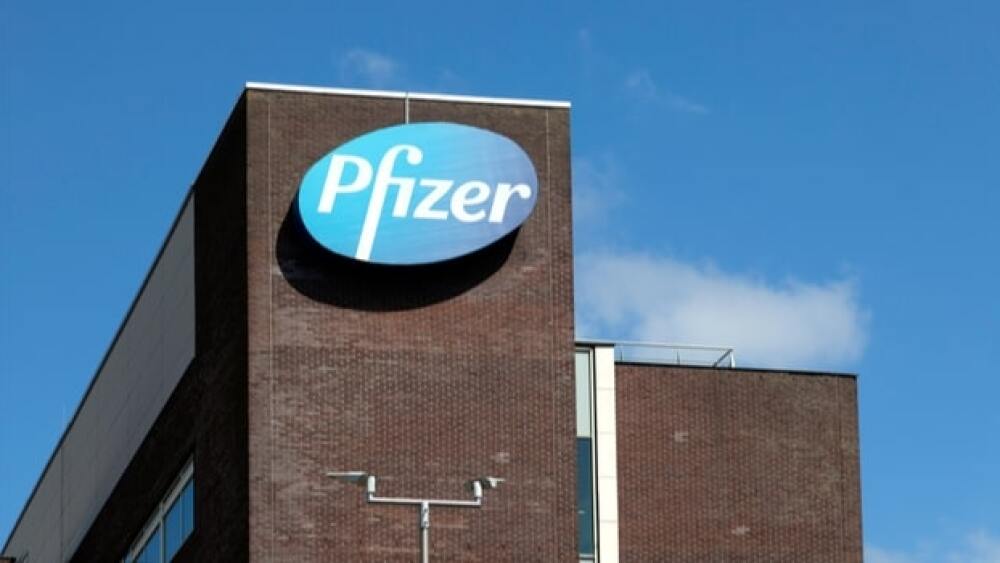Pfizer announced today that it has received positive top-line results from the Phase III JADE REGIMEN study, examining abrocitinib for the treatment of severe atopic dermatitis.
Repelsteeltje/Shutterstock
Pfizer announced today that it has received positive top-line results from the Phase III JADE REGIMEN study, examining abrocitinib for the treatment of severe atopic dermatitis (AD). Specifically, the investigational oral once-daily Janus kinase 1 (JAK1) inhibitor was looked at in patients aged 12 and older with moderate to severe AD following response to initial open label induction treatment with 200mg abrocitinib.
For the trial, patients were randomized into 200mg, 100mg and placebo groups. Both doses of abrocitinib met the primary endpoint, with fewer patients experiencing a loss of response requiring a rescue treatment, compared to those who received the placebo. The secondary endpoint of a larger percentage of subjects maintaining an Investigator’s Global Assessment (IGA) response of “clear” or “almost clear” was also met.
“Atopic dermatitis brings a lot of uncertainty and disruption to daily life, and the unpredictability of flares can make treating and managing the disease complex and frustrating,” said Michael Corbo, Ph.D., Chief Development Officer, Inflammation & Immunology, Pfizer Global Product Development. “These latest results from our Phase III clinical trial program shed light on the potential abrocitinib, if approved, could have to prevent troublesome flares in patients.”
A total of 1,233 subjects were enrolled in the study, and 64.7% responded during the initial 12-week induction period with abrocitinib monotherapy (200mg, once per day). In total, the study took place over the course of 52 weeks.
Pfizer announced back in October that the U.S. Food and Drug Administration (FDA) had accepted for filing and granted Priority Review designation to its New Drug Application (NDA) for abrocitinib (100mg and 200mg). Specifically, this was for the treatment of moderate to severe AD in patients 12 and older. At the time, the company noted that the FDA was expected to make a decision by April 2021.
The European Medicines Agency (EMA) also accepted the Marketing Authorization Application for abrocitinib in the same patient population, and stated that a decision could be made by the second half of 2021.
“Atopic dermatitis is a serious, unpredictable, and often debilitating condition that can have a significant impact on the daily lives of patients and their families,” said Corbo, at the time of the announcement. “We are grateful to those who participated in our clinical studies supporting these regulatory filings and proud that the FDA has granted abrocitinib both Breakthrough Therapy and Priority Review designations. We are working diligently with the regulatory authorities to bring abrocitinib to patients in the U.S. and the EU, where, if approved, it may provide an effective and convenient new option.”
The filings were based on the results of a Phase III clinical program in which abrocitinib showed statistically significant improvements in skin clearance in comparison to a placebo. The product was also well-tolerated and had a consistent safety profile.
“Many patients with moderate to severe atopic dermatitis have poorly controlled disease. They need additional treatment options that alleviate the symptoms most important to them,” said Jonathan Silverberg, MD, PhD, MPH, Department of Dermatology, The George Washington University School of Medicine and Health Sciences. “Abrocitinib has demonstrated strong efficacy at relieving the signs and symptoms of atopic dermatitis, including rapid reduction of itch, across multiple clinical trials. If abrocitinib is approved, it could make a meaningful difference in real-world clinical practice.”
The Priority Review designation is typically granted to medicines that the FDA acknowledges may have the potential to provide significant improvements in the safety and effectiveness of the treatment, prevention or diagnosis of a serious ailment.





